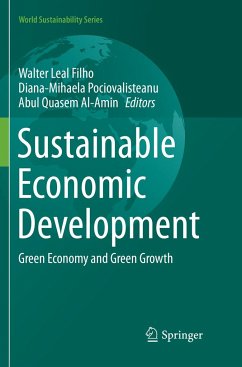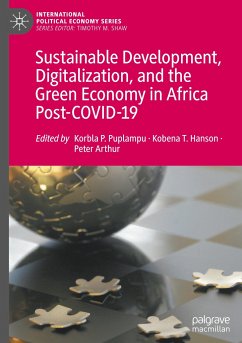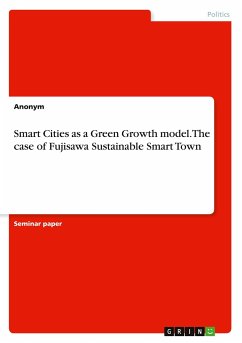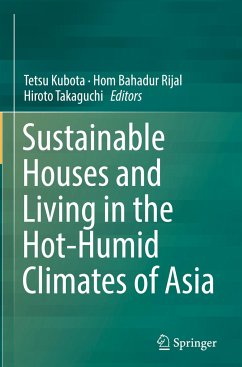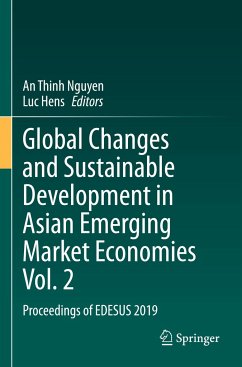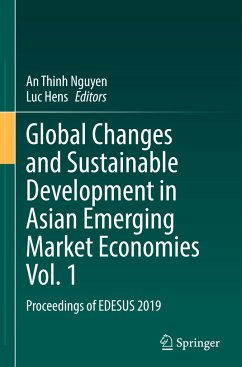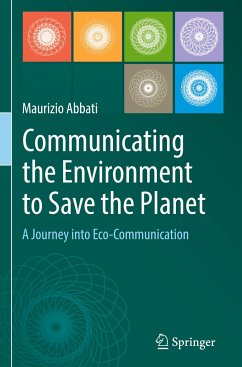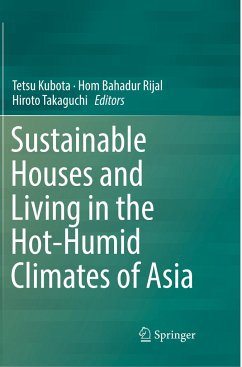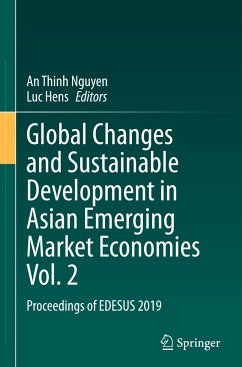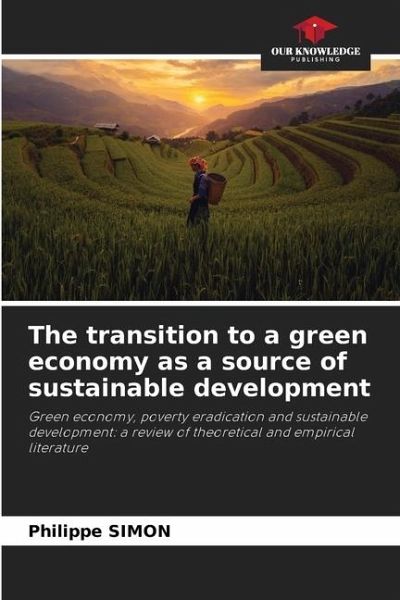
The transition to a green economy as a source of sustainable development
Green economy, poverty eradication and sustainable development: a review of theoretical and empirical literature
Versandkostenfrei!
Versandfertig in 6-10 Tagen
40,99 €
inkl. MwSt.

PAYBACK Punkte
20 °P sammeln!
This publication is the result of a research thesis in economics. It seeks to show how the transition to a green economy can become a new source of opportunities not only to help low-income food-deficit countries (LIFDCs) escape extreme poverty, but also to achieve sustainable development. In this book, we attempt to analyze theoretically and empirically the role that the transition to a green economy can play in eradicating extreme poverty and moving LIFDCs towards sustainable development.We highlight the literature review on the responsibility of climate change for the deterioration in the q...
This publication is the result of a research thesis in economics. It seeks to show how the transition to a green economy can become a new source of opportunities not only to help low-income food-deficit countries (LIFDCs) escape extreme poverty, but also to achieve sustainable development. In this book, we attempt to analyze theoretically and empirically the role that the transition to a green economy can play in eradicating extreme poverty and moving LIFDCs towards sustainable development.We highlight the literature review on the responsibility of climate change for the deterioration in the quality of life of people living below the poverty line according to the World Bank. We also look at the role of the transition to a green economy in leading LIFDCs towards sustainable development. Finally, we look at the different ideas developed in the context of orienting the LIFDCs' economy towards sustainable development, and the appropriate responses not only for the LIFDCs, but also for the rest of the world.





